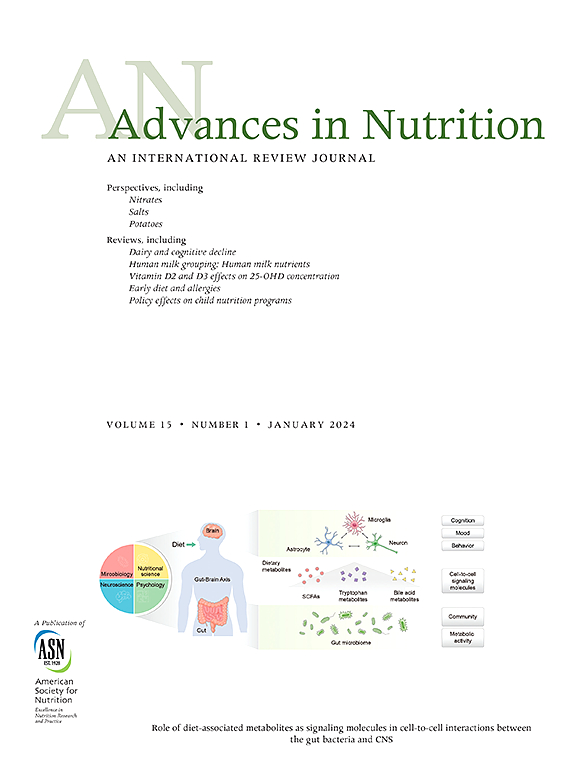Treatment of Undernutrition in Pregnancy Requires Adequate Food and Inflammation Control
IF 9.2
1区 医学
Q1 NUTRITION & DIETETICS
引用次数: 0
Abstract
Undernutrition in pregnancy remains a substantial problem worldwide, disproportionately affecting females living in low- and middle-income countries where food insecurity and limited access to high-quality nutrition exacerbate maternal and fetal health risks. Undernutrition during this critical time in the lifecycle can have adverse effects on both the pregnant female and her offspring. Despite the widespread recognition of this issue, current international guidelines provide insufficient direction on optimal nutritional management strategies. Most clinical trial evidence has yielded inconclusive results. This perspective synthesizes evidence on current management strategies in addressing macronutrient and micronutrient deficiencies in pregnancy. Additionally, we examine the critical role of inflammation in moderating the effectiveness of nutritional interventions and discuss emerging strategies that integrate infection control with nutrition to optimize maternal and neonatal outcomes. Given the limitations of existing management strategies, there is an urgent need for more comprehensive, evidence-based guidelines to improve pregnancy outcomes for undernourished females worldwide.
观点:治疗妊娠期营养不良需要充足的食物和控制炎症。
孕期营养不足仍然是世界范围内的一个重大问题,对生活在低收入和中等收入国家的妇女的影响尤为严重,在这些国家,粮食不安全和获得高质量营养的机会有限加剧了孕产妇和胎儿健康风险。在生命周期的这一关键时期营养不良会对孕妇和她的后代产生不利影响。尽管人们普遍认识到这一问题,但目前的国际指导方针在最佳营养管理策略方面提供的指导不足。大多数临床试验证据都产生了不确定的结果。这一观点综合了目前处理妊娠期宏量营养素和微量营养素缺乏的管理策略的证据。此外,我们研究了炎症在调节营养干预有效性中的关键作用,并讨论了将感染控制与营养相结合以优化孕产妇和新生儿结局的新兴策略。鉴于现有管理策略的局限性,迫切需要制定更全面、基于证据的指南,以改善全世界营养不良妇女的妊娠结局。意义声明:该观点提供了证据,表明妊娠期营养不良仍然是全球的一个重要问题,目前的管理策略仍然不足。基于这些发现,该观点敦促进一步研究和国际支持,以确定管理这一严重疾病的最佳策略。
本文章由计算机程序翻译,如有差异,请以英文原文为准。
求助全文
约1分钟内获得全文
求助全文
来源期刊

Advances in Nutrition
医学-营养学
CiteScore
17.40
自引率
2.20%
发文量
117
审稿时长
56 days
期刊介绍:
Advances in Nutrition (AN/Adv Nutr) publishes focused reviews on pivotal findings and recent research across all domains relevant to nutritional scientists and biomedical researchers. This encompasses nutrition-related research spanning biochemical, molecular, and genetic studies using experimental animal models, domestic animals, and human subjects. The journal also emphasizes clinical nutrition, epidemiology and public health, and nutrition education. Review articles concentrate on recent progress rather than broad historical developments.
In addition to review articles, AN includes Perspectives, Letters to the Editor, and supplements. Supplement proposals require pre-approval by the editor before submission. The journal features reports and position papers from the American Society for Nutrition, summaries of major government and foundation reports, and Nutrient Information briefs providing crucial details about dietary requirements, food sources, deficiencies, and other essential nutrient information. All submissions with scientific content undergo peer review by the Editors or their designees prior to acceptance for publication.
 求助内容:
求助内容: 应助结果提醒方式:
应助结果提醒方式:


